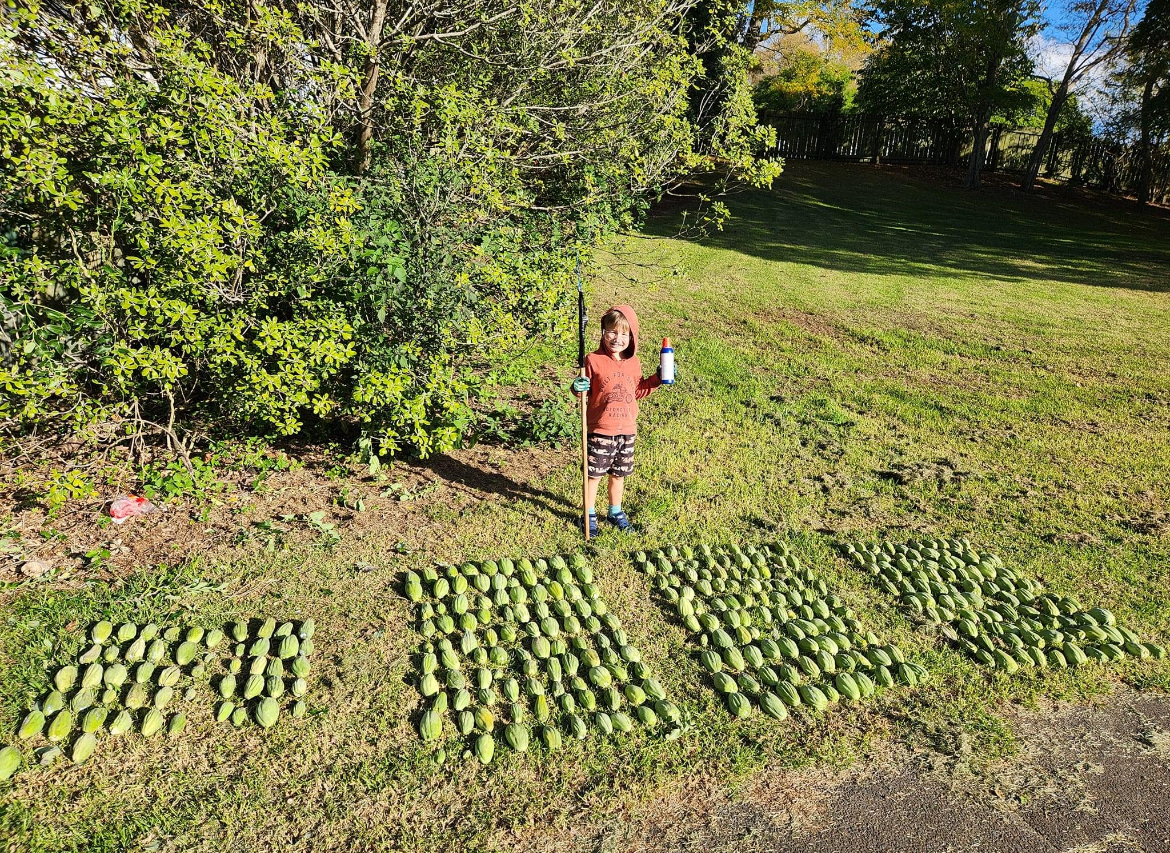DOMP Comp returns for third year

HAUL: Thomas Hutching with his massive haul of moth plant pods from last year’s competition.
Brianna Stewart
HALO Whakatāne is inviting students, their friends, and families to sign up for this year’s Destruction of Moth Plant Competition (DOMP Comp), which begins in April and runs through to the end of May.
This annual competition encourages children across the Eastern Bay to help stop the spread of the invasive moth plant’s seeds. After the success of the past two years, the HALO team is ready to launch the competition once again.
While organising this event is a significant task for their small team, lead community igniter Bridget Palmer believes the outcomes make it all worthwhile.
“Although it’s a huge undertaking for us, the impact is undeniable,” she said.
“Last year, 24 school teams from Otakiri to Ōpōtiki worked together to combat this invasive species. They collected more than 36,000 pods, preventing 36 million seeds from germinating.”
Supported by adult volunteers, the teams worked to remove the destructive moth plant, which threatens native vegetation by smothering and strangling it.
The plant’s seeds are poisonous, its sap can cause illness, and insects, including moths and butterflies, often become trapped and die.
The collected pods are safely disposed of through hot composting by Plateau Compost and Ecocast.
“HALO Whakatāne is a community-led conservation initiative that empowers students to actively contribute to the protection and regeneration of our local environment,” Mrs Palmer said.
“The DOMP Comp is a great way for young people to take meaningful action. We’ve had parents tell us that road trips now often revolve around collecting moth pods from the roadside.”
The competition not only allows students to apply their maths skills and create art, but it also provides a deeper purpose for the HALO team.
“For us, it’s about sharing knowledge and offering opportunities for young people to lead authentic environmental challenges,” said Mrs Palmer.
“We often place the responsibility of restoring the environment on young people, but we don't always give them the tools and support they need to succeed.”
Mrs Palmer emphasized that HALO Whakatāne aims to give young people experiences that empower them to be effective leaders, with the support and knowledge behind them.
“We want them to get on the waka, but we want them to paddle it from the front.”
With a vision to create an environment where tīeke (saddleback) birds can thrive in the heart of Whakatāne, the HALO team has a big task ahead.
However, with community support, the sharing of knowledge, and valuable partnerships, the team is working hard to make it happen.
Teams are asked to register via the HALO Whakatāne website: www.halowhakatane.org.nz and collect their team kits, sponsored by BOP Regional Council, from 35 Quay Street.